About Highlands River Foundation – Mothers Making A Change
Mothers Making A Change of Highlands River Foundation in Marietta, Georgia, is a facility that provides specialized substance use treatment for women who are either pregnant or are parents to young children. The program provides women with treatment options such as residential and outpatient care.
MMAC’S Treatment Approach
The treatment approach at Mother Making a Change (MMAC) combines parenting education, case management and trauma-informed therapy. Counseling is provided to women suffering from low self-esteem and trauma. Couseling will help the women feel better about themselves and find better ways of dealing with their issues.
Therapeutic childcare services are provided for those with child care responsibilities and the fear of being separated from their children, while seeking treatment. To help the clients, family therapy sessions are provided to help in the process of repairing relationships.
Life skills training is also provided to help the women prepare for independent living. Employment assistance is available to help clients after treatment.
Affordable Opioid Recovery Program
Opioid addiction can be treated with Medication-Assisted Treatment (MAT). Women will have medication options like Suboxone and methadone to assist with withdrawal symptoms.
Financial barriers should never stand in the way of treatment. Insurance is accepted, including Medicaid. MMAC is offering these women a chance to start over and provides an environment that supports both recovery and motherhood.
Addiction Treatment Programs
Alcohol Rehab
If you’re struggling with your alcohol use, consider an alcohol rehab in Georgia. During this program, you’ll work with professional counselors to deal with the psychological, emotional, and physical issues that alcohol misuse can cause. Over time, you’ll learn how to live without drinking long term.
Opioid Addiction
If your life has been negatively impacted by opioid addiction, a high-quality rehab in Georgia can help. High-quality treatment lays a foundation for sobriety and helps prevent relapses by giving you new ways of thinking, better coping skills, and a better understanding of key life skills such as emotional regulation and communication.
Drug Rehab
The best way to achieve recovery from substance use disorder is by completing a high-quality drug rehab in Georgia and applying the tools you learn to stay in recovery. During this program, you’ll work with professional counselors to deal with the psychological, emotional, and physical issues that substance misuse can cause. Over time, you’ll learn how to live without drug use long-term.
Young Adult Rehab
If you’re a young adult struggling with substance use, consider a young adult rehab program in Georgia. Young adult programs may include detox, inpatient treatment, outpatient care, aftercare services, and more.
Adult Program
An adult program in Kentucky addresses the unique needs of adults, such as finding secure housing, building a career, and raising a family. In addition to typical detox, inpatient treatment, and outpatient care, an adult program may also teach clients about building a career, saving for retirement, parenting, and more.
Women's Rehab
A women’s rehab in Georgia can provide every level of care while addressing the unique needs of women. Women’s programs may include detox, inpatient treatment, outpatient care, aftercare services, and more. They will also address issues specific to women such as motherhood, being a working mother, having healthy communication, and more.
Insurance Coverage
Medicaid
How do you pay for rehab in Georgia? If you have Medicaid, consider using it to pay for some or all of the costs of treatment. You can access multiple types of treatment in centers that accept Medicaid, including detox, inpatient, and outpatient care.
Private insurance
In Georgia, one of the options to pay for substance use treatment is using private insurance. Different plans have different coverage levels, so be sure to check with your insurance company for details. You may be responsible for certain costs, such as copayments and deductibles. Overall, however, private insurance makes treatment much more affordable.
Self-pay options
Paying for rehab in Georgia yourself, out of your own pocket, is known as self-pay. You can write a check, have money electronically sent to the center, or use a medical loan. Payment details may vary depending on the level of care.
Sliding scale payment assistance
How do you pay for rehab in Georgia? If you are struggling with the cost, consider a program that has a sliding scale payment plan. Centers offer detox, inpatient treatment, and outpatient care on a sliding scale basis, where you pay less based on your income and family size.
Medicare
Medicare can help pay for some or all of the costs of rehab in Georgia. You may have out-of-pocket costs such as a deductible or copay, and you’ll want to look for a treatment center that accepts your Medicare coverage.
Financial aid
How do you pay for rehab in Georgia? If you qualify, consider using financial aid programs to pay for some or all of the costs of treatment. Treatment centers may offer grants or scholarships that make it easier for those who are lower-income to get the care they need. Contact the treatment center you’re interested in for details.
Military insurance
In Georgia, military insurance is one of your options when it comes to paying for rehab if you’re a veteran or service member. You may have out-of-pocket costs such as a deductible or copay, and you’ll want to look for a treatment center in-network with your insurance coverage.
Levels of Care
- 1
Inpatient Rehab
During inpatient treatment in Georgia, clients receive evidence-based treatment while living full-time at the facility. Inpatient treatment provides focused therapy that allows you to understand the roots of substance use, learn healthy coping skills, and create a new life.
- 2
Outpatient Rehab
Outpatient treatment in Georgia can provide a great way to practice and reinforce new habits formed in residential rehab programs. There are several goals in outpatient treatment. Some sessions may be focused on education about a certain topic, while others allow clients to discuss a specific issue they face.
- 3
Aftercare Support
It’s easy to wonder what’s next after treatment, but fortunately, aftercare in Georgia can provide ongoing support. One element of aftercare that can be very helpful is peer support, where you connect with those who have been where you are.
- 4
Sober Living Homes
A key part of long-term recovery in Georgia is to have a safe, substance-free living environment, which is known as sober living. One element of sober living that can be very helpful is peer support, where you build relationships with others in recovery and learn from those who have been where you are.
Therapies
Family Therapy
Family therapy in Georgia can address conflicts in your family so your loved ones can help provide encouragement, support, and accountability as you work through substance use treatment. During family therapy, you may talk about acceptance issues, past trauma, communication problems, and more. These discussions are facilitated by a professional who brings an unbiased perspective and can promote healthy communication.
Group Therapy
Group therapy in Georgia can provide encouragement, support, and accountability as you work through substance use treatment. There are several goals in group therapy. Some sessions may be focused on education about a certain topic, while others allow clients to discuss a specific issue they face. Overall, the group members hold each other accountable and provide encouragement.
Individual Therapy
During individual therapy in Georgia, clients have a confidential environment to work through their struggles with a professional. Individual therapy is only one element of rehab treatment, along with activities, peer support, group counseling, relapse prevention, and more. Together, all these methods support you in establishing long-term recovery.
Trauma Therapy
Talking about what you’ve been through and how it impacted you is an important way to heal, and trauma-informed therapy in Georgia gives you that opportunity. Substance use treatment includes detox, inpatient treatment, and outpatient care, and trauma-informed therapy may be a part of each of these stages. The goal is to help clients acknowledge past experiences, address their feelings, and develop healthy coping mechanisms.
Accreditations
Location
Contact Highlands River Foundation – Mothers Making A Change
Top Drug Rehab Centers in Georgia
-
 Georgia
GeorgiaTwin Lakes Recovery Center Monroe
398 State Hwy 11 Monroe, Georgia 30655
-
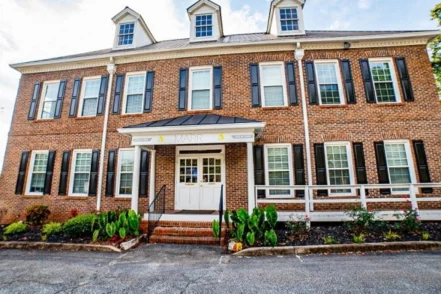 Georgia
GeorgiaMARR Addiction Treatment Centers
2815 Clearview Place Atlanta, Georgia 30340
-
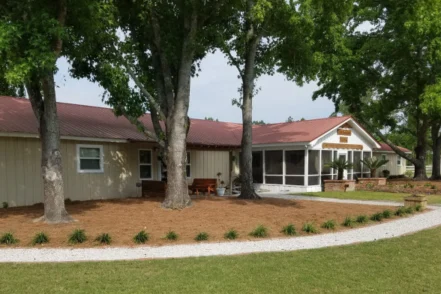 Georgia
GeorgiaBridges of Hope Homerville
1326 Antioch Church Road Homerville, Georgia 31634
-
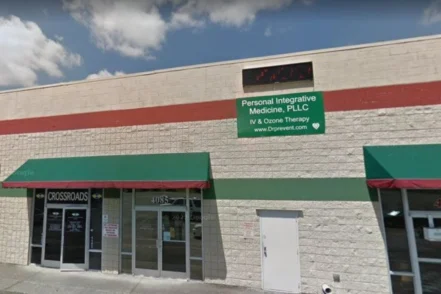 Georgia
GeorgiaCrossroads Treatment Center of Northwest Georgia
4083 Cloud Springs Road Ringgold, Georgia 30736
-
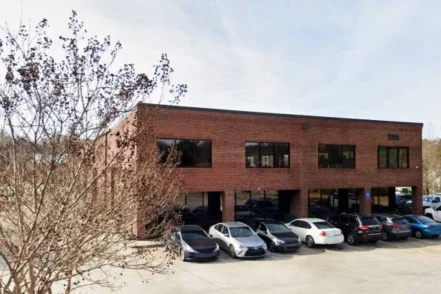 Georgia
GeorgiaBlue Ridge Mountain Recovery Center
255 Depot Street, Suite 200 Ball Ground, Georgia 30107
-
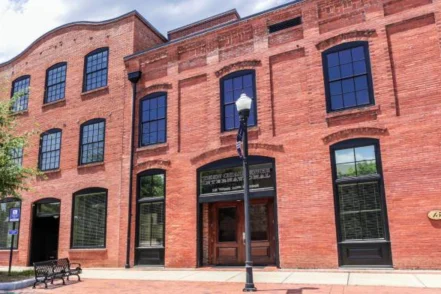 Georgia
GeorgiaTeen Challenge Southeast Region Corporate Office
15 West 10th Street Columbus, Georgia 31901
-
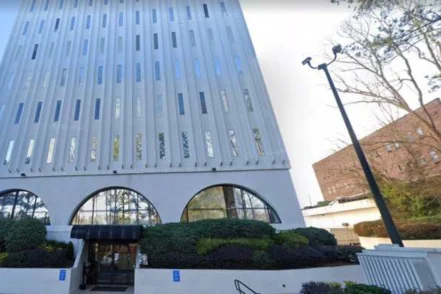 Georgia
GeorgiaSober Living America
2530 Peachwood Circle Ne Atlanta, Georgia 30345
-
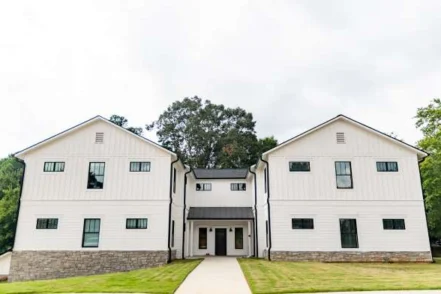 Georgia
GeorgiaNo Longer Bound
2725 Pine Grove Road Cumming, Georgia 30041
-
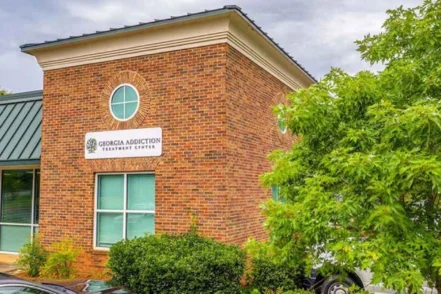 Georgia
GeorgiaGeorgia Addiction Treatment Center
100 Governors Trace, Suite 109-110 Peachtree City, Georgia 30269
-
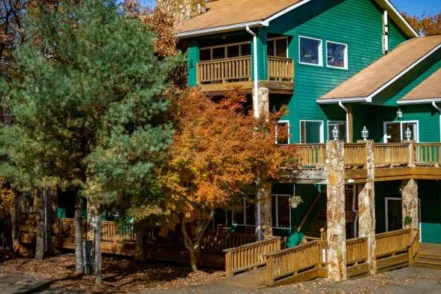 Georgia
GeorgiaMount Sinai Dahlonega
330 Mt. Sinai Drive Dahlonega, Georgia 30533
-
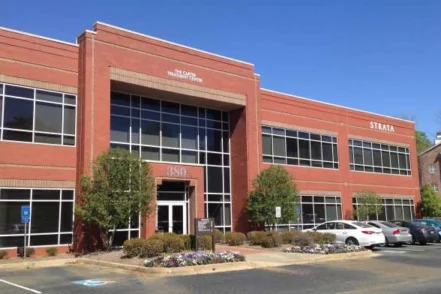 Georgia
GeorgiaThe Carter Treatment Center Cumming
380 Dahlonega, Suite 100 Cumming, Georgia 30040
-
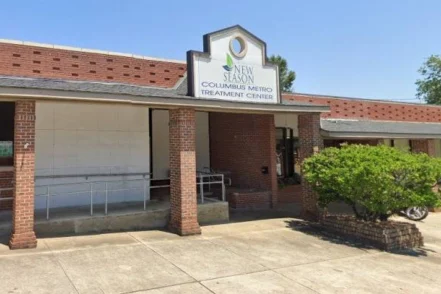 Georgia
GeorgiaNew Season Columbus Metro Treatment Center
1135 13th Street Columbus, Georgia 31901
-
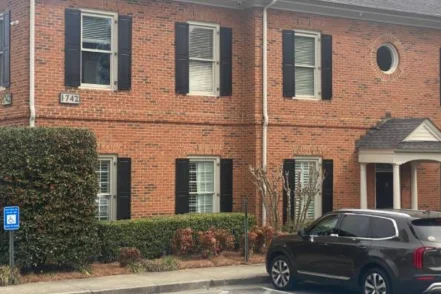 Georgia
GeorgiaAtlanta Recovery Place
1742 Mt Vernon Rd, Suite 100 Dunwoody, Georgia 30338
-
 Georgia
GeorgiaSoutheast Addiction Center
3020 Holcomb Bridge Rd, Suite C Norcross, Georgia 30071
